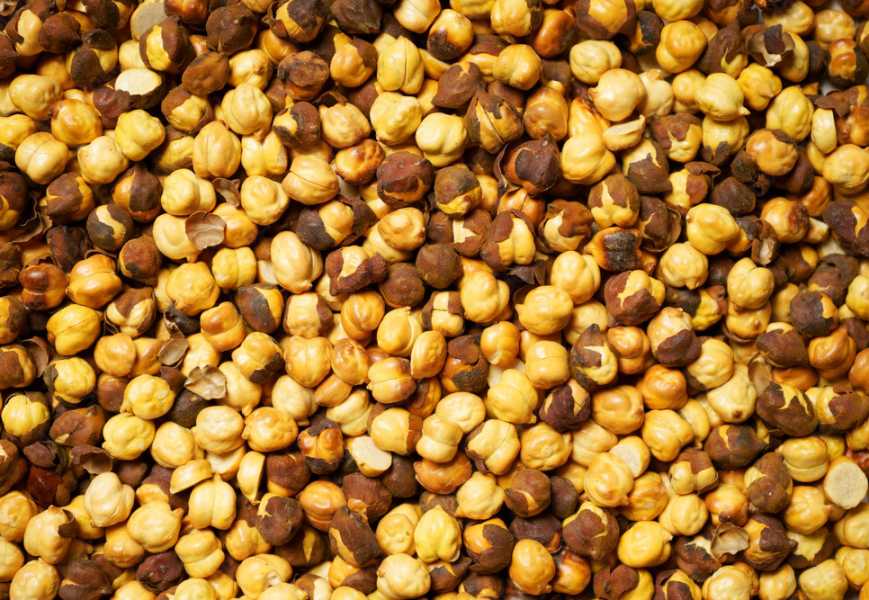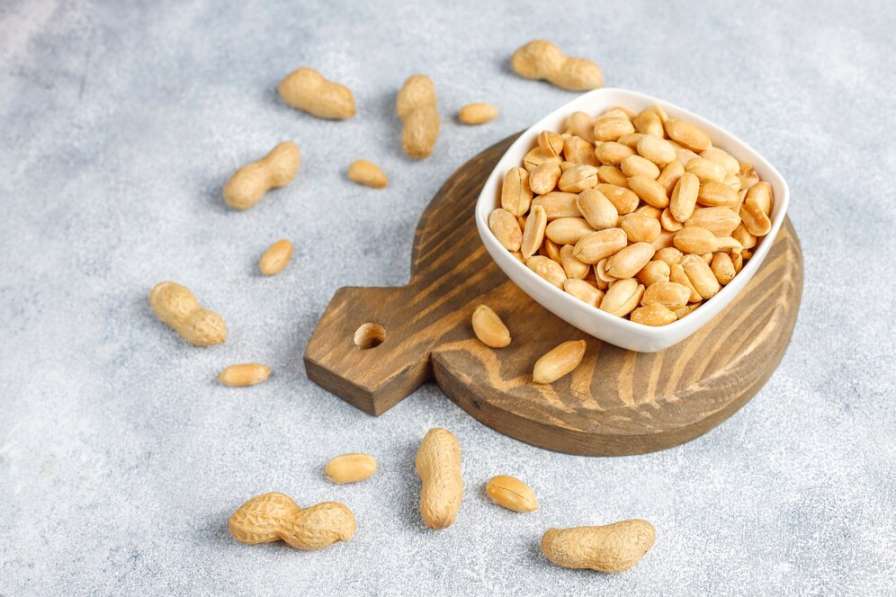Best food for hair growth
Best food for hair growth: Long, strong, and lustrous hair is practically everyone’s ambition, but not everyone can achieve it. Of course, it’s important to keep your scalp healthy, but it’s also critical to watch what you eat. Dry, frizzy, smooth, or silky hair are all indicators of your overall health.

- Each strand is made up of cells that contain keratin, a tough protein that needs to be replenished with minerals and vitamins on a regular basis to keep your hair long and strong.
- Your hair consists of two structures: the hair shaft, which is visible outside of your skin, and the hair follicle, which is buried under your skin.
- Your scalp has approximately 100,000 hair shafts that are at various stages of hair growth at any given time. Anagen (growth), catagen (regression), telogen (rest), and exogen (shedding) are the four stages of hair growth.
- A hair shaft has a life cycle of about 3.5 years, and hair grows at an average pace of 0.05 inches every month. Your hair grows from hair follicles, which require specific nutrients to remain healthy and fed.
- Hair follicle cells are among the most quickly dividing cells in the body, making them vulnerable to nutrient deficiencies, pollutants, and malnutrition, which can result in poor hair growth and hair loss.
- Furthermore, essential nutrients are required for the management of the hair development cycle and overall hair health. Following a well-rounded diet rich in the nutrients essential for hair health.
1. Citrus Fruits for a Vitamin C Boost
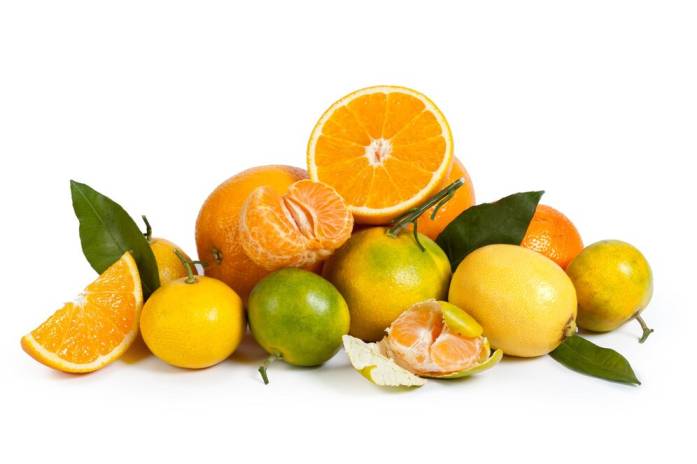
- Because your body requires vitamin C for iron absorption, you should include citrus fruits in your diet. One lime per day is enough to acquire your recommended amount of vitamin C, according to nutritionists.
- Simply prepare a chilled glass of nimbu paani with honey or a healthy alternative to refined sugar. You might also use oranges. Vitamin C is also essential for the creation of collagen, which strengthens capillaries that connect to hair shafts, ensuring a steady supply of nutrients and rapid hair development.
- Vitamin C increases hair development, lowers hair loss, and enhances hair health. A lack of vitamin C can also cause dry hair and split ends.
2. Eggs
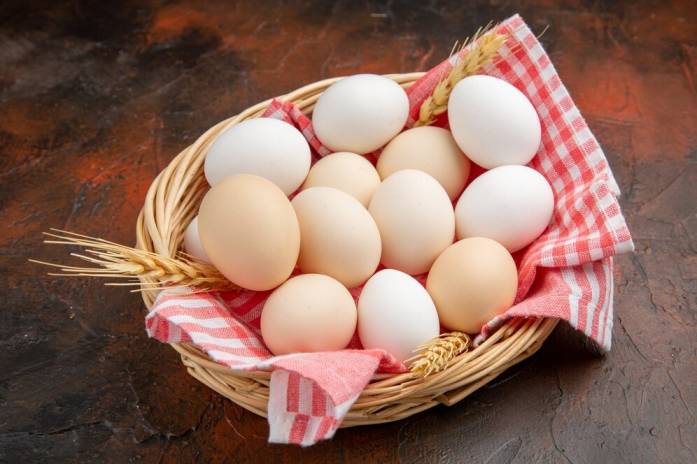
- Because your hair is made of protein, it is critical that you consume an adequate amount of protein. Eggs are one of the finest natural sources of protein. When we consume eggs, we satisfy our protein and iron needs.
- Hair loss can result from a lack of this nutrient. Biotin also aids in the strengthening of fragile fingernails.
- Eggs are high in protein as well as key minerals that promote hair health, such as choline, iron, and vitamins A, D, and B12. Lutein and zeaxanthin, two chemicals present in eggs, also have an important role in cellular health, particularly in the eyes, skin, and hair.
- Eggs are also high in biotin, a B vitamin that promotes hair growth. On the other hand, a biotin deficiency can cause hair loss.
3. Nuts and Seeds
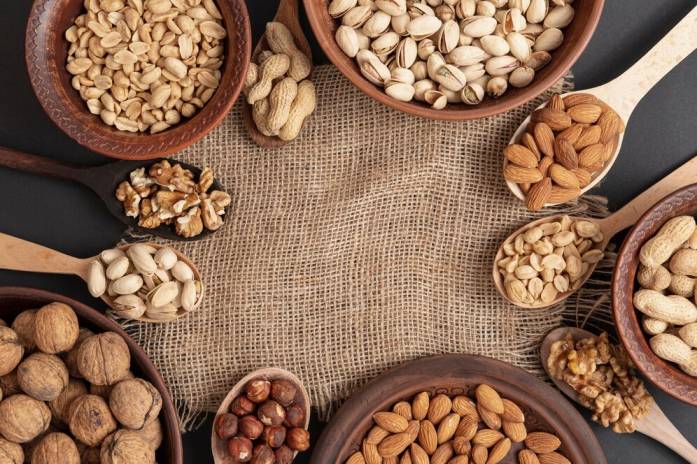
- Omega-3 fatty acids nourish and thicken the hair. Because your body cannot produce these healthy fats, you must get them from your diet.
- Omega-3 fatty acids are abundant in almonds and walnuts. Similarly, flaxseeds can be a nutritious mid-meal snack while also providing vital lipids for your hair.
- Peanuts, almonds, walnuts, and cashews are high in protein, good fats, biotin, and zinc, all of which support healthy tissue formation on the scalp and can help stimulate hair growth and prevent hair loss.
- A 1/4-cup portion has up to 9 grammes of protein, 4 grammes of fibre, and a unique blend of antioxidants.
4. Whole Grains
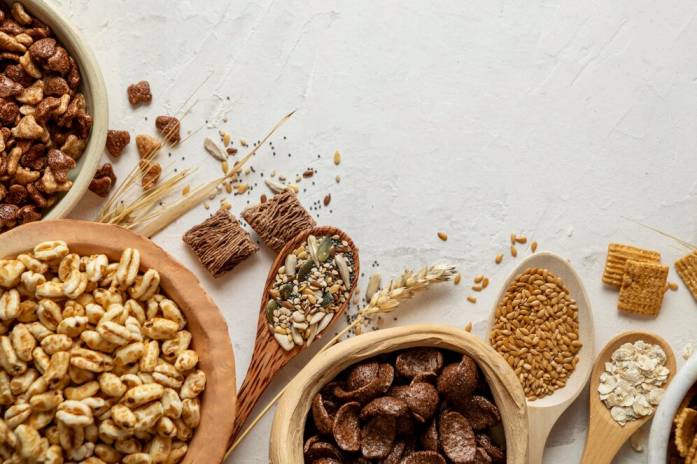
- Whole grains contain biotin, as well as iron, zinc, and B vitamins. Biotin is necessary for cell proliferation and plays a key role in the production of amino acids (proteins), which are required for hair growth.
- Biotin encourages hair development and makes it healthier and thicker. You can also include fortified whole grains in your diet because they are high in iron.
- Maintaining optimum iron levels in the body increases circulation in hair follicles and contributes to healthy and thick hair.
5. Carrots.

- Drink carrot juice every day to promote rapid hair development. It also helps the scalp by producing natural sebum oil, which keeps the scalp and roots healthy and promotes hair development.
- Carrots include vital growth-promoting elements such as vitamin A and biotin, which promote keratin formation. Carrots also contain vitamin C and E, which work as effective antioxidants, strengthening the hair shaft. These vitamins also increase blood circulation, which aids in nutritional absorption.
- Thus, incorporating carrots into your daily hair care routine might result in thick, long, and beautiful hair in just a few months.
6. Avocado
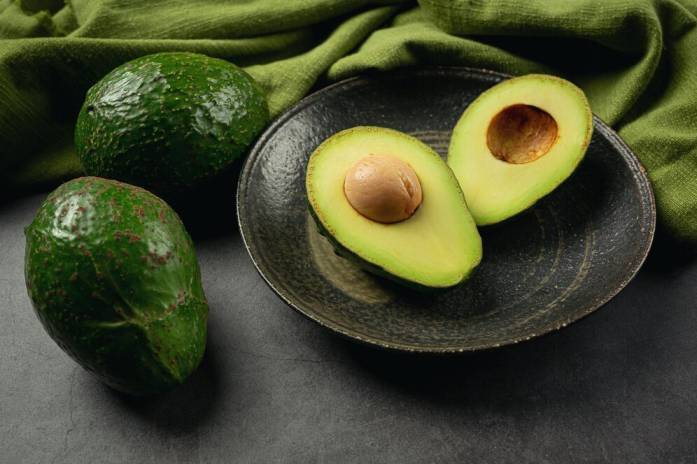
- Vitamin E promotes hair development by improving blood circulation and assisting follicles in working more efficiently. It also keeps the oil and PH levels balanced, which, if out of balance, can block the hair follicles and be an obstacle to hair growth.
- Avocado is high in vitamin E and monounsaturated fats, both of which are beneficial to the heart. You can mix it into your breakfast salad or a green smoothie. Avocados also contain folate, a B vitamin essential for healthy hair. A lack of folate can result in hair, skin, and nail abnormalities, as well as hair loss.
- Avocado is high in healthy fats and biotin and is commonly used in DIY hair masks. One medium-sized avocado has around 28% of your daily vitamin E requirements. It even protects the scalp from oxidative stress and damage, which can lead to poor hair quality if not properly nourished.
7. Spinach and other dark leafy greens.

- Iron is a necessary mineral for your hair cells. In fact, a lack of iron in the body can lead to hair loss. When your body lacks iron, oxygen and nutrients are not efficiently carried to the hair roots and follicles. This prevents the hair from developing properly and makes the strands of hair more fragile.
- If you haven’t used spinach for hair development before, it’s probably time to incorporate this leafy green vegetable into both your healthy diet and your hair care routine. Hair needs special care and nourishment to keep it healthy.
- Spinach is high in iron, protein, vitamins A and C, and other micronutrients, which can all help to keep your hair healthy, nourish the follicles, and stimulate hair growth.
8. Eat Sweet Potatoes
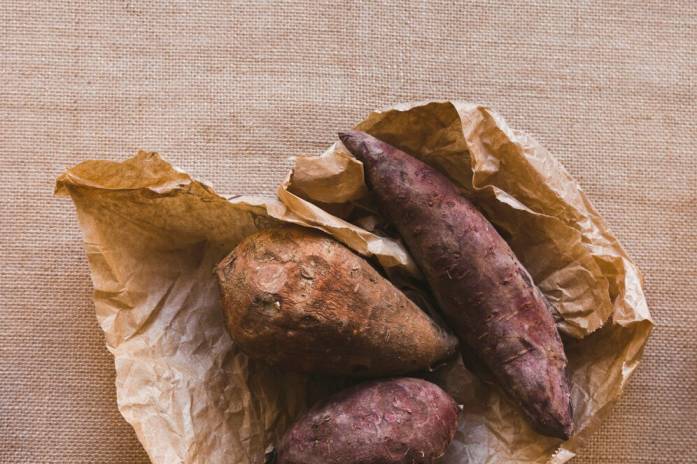
- Have dry hair that has lost its lustre? Sweet potatoes contain a lot of beta-carotene, which is an antioxidant. The body converts beta-carotene to vitamin A. This helps to prevent dry, lacklustre hair.
- It also stimulates the glands in your scalp to produce sebum, an oily fluid that keeps your hair from drying out. Iron, copper, potassium, magnesium, and beta-carotene are all abundant in sweet potatoes.
- Beta-carotene promotes cell growth, inhibits hair loss, and can even reduce hair dullness. They also have antioxidant properties, which might help prevent oxidative stress-related hair loss.
9. Lentils
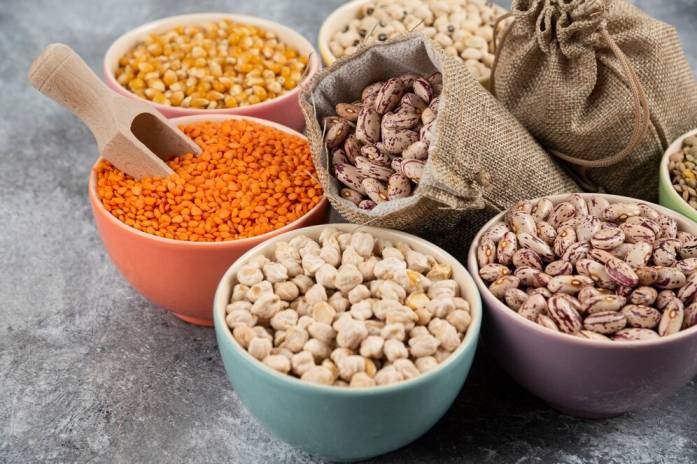
- Lentils are one of the most protein-rich plant foods available on the market. Lentils are high in amino acids that promote hair growth, such as leucine, isoleucine, lysine, and valine.
- Protein is required for the hair growth cycle, and a lack of protein can have a negative influence on hair growth, structure, and pigmentation. According to research, a low protein diet might promote telogen effluvium and poor hair development.
- Furthermore, a lack of specific amino acids, which are the building blocks of protein, is more likely in people who are losing their hair.
- People suffering from androgenetic alopecia, for example, are more likely to be low in the important amino acids histidine, leucine, and valine.
10. Blackberries
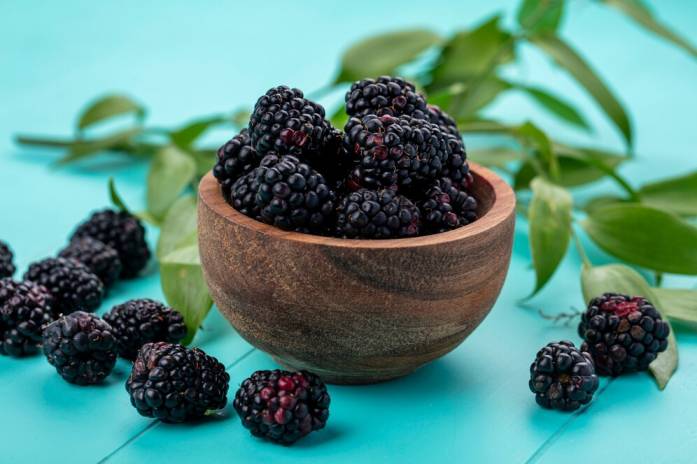
- A high-fat diet, smoking, and other factors all contribute to inflammation. Inflammation has been associated with common hair loss diseases such as alopecia areata, stress-induced hair loss, and male- and female-pattern hair loss (androgenetic alopecia). Anti-inflammatory and antioxidant phenolic substances found in blackberries include anthocyanins, ellagic acid, and quercetin.
- Consuming meals high in these components may reduce oxidative stress, which happens when hazardous substances like free radicals overwhelm the body’s antioxidant defences, protect hair follicle cells from oxidative damage and support healthy hair development.
- Blackberries are one of the finest antioxidant sources available. In fact, according to a 2020 study that assessed the total phenolic and anthocyanin contents as well as the total antioxidant activity of six different berries: blackcurrant, red raspberry, redcurrant, blackberry, gooseberry, and blackberries had the highest antioxidant and anthocyanin levels of all of the included berries.
Conclusion
In conclusion, if you desire strong and healthy hair, increase your intake of antioxidant flavonoids, which help strengthen hair follicles. Dietary, nutrient-rich meals can boost the health and thickness of your hair. Including iron-rich foods in your diet promotes blood circulation, which improves nutrient delivery to hair follicles. Protein-rich diets also promote healthy, thick hair. Some vital nutrients, such as biotin, iron, Vitamin E, and Vitamin C, can make a significant difference and work wonders for your hair strands. Your hair is always growing, and hair follicles are extremely prone to nutrient changes, oxidative stress, and hormone swings.
Though there are numerous factors that influence hair growth, eating meals rich in nutrients essential for hair follicle health is critical for keeping healthy hair and encouraging hair growth. Protein, zinc, selenium, B vitamins, and vitamin E are key nutrients for regulating hair development cycles and keeping hair appearing healthy and strong.

